Basic math concepts Kindergarten Math Worksheets
5 filtered results
-
From - To
Explore our engaging Kindergarten Math Worksheets designed to introduce basic math concepts to young learners! Our resources help children master foundational skills such as addition, subtraction, counting, and number recognition through fun, interactive activities. Each worksheet is crafted to align with early childhood education standards, ensuring a comprehensive understanding of math while keeping learning enjoyable. Perfect for at-home practice or classroom use, these printable worksheets boost confidence and mathematical proficiency in young students. Start your child’s math journey today with our thoughtfully created materials that transform learning into an exciting adventure! Visit us to access a variety of worksheets tailored just for kindergartners.
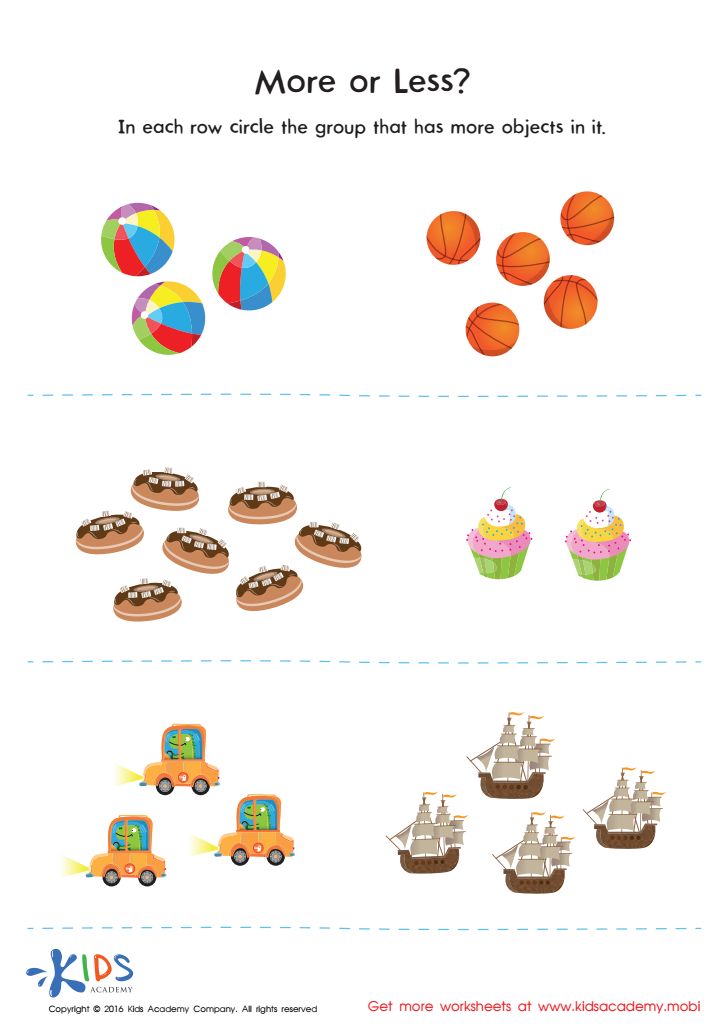

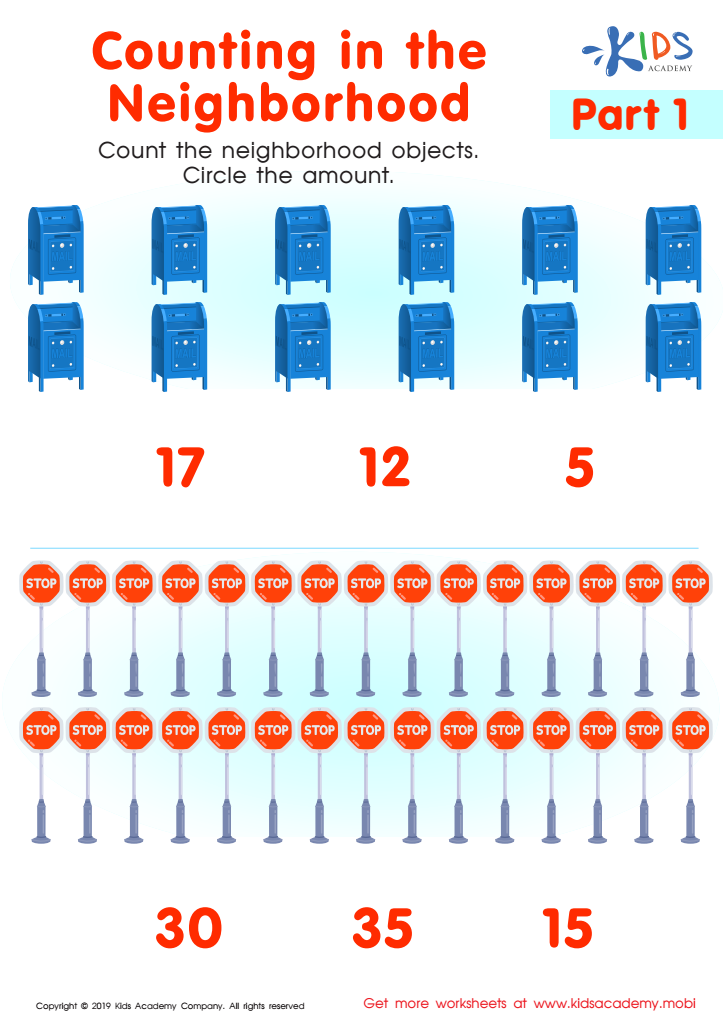

Counting in the Neighborhood Part1 Worksheet
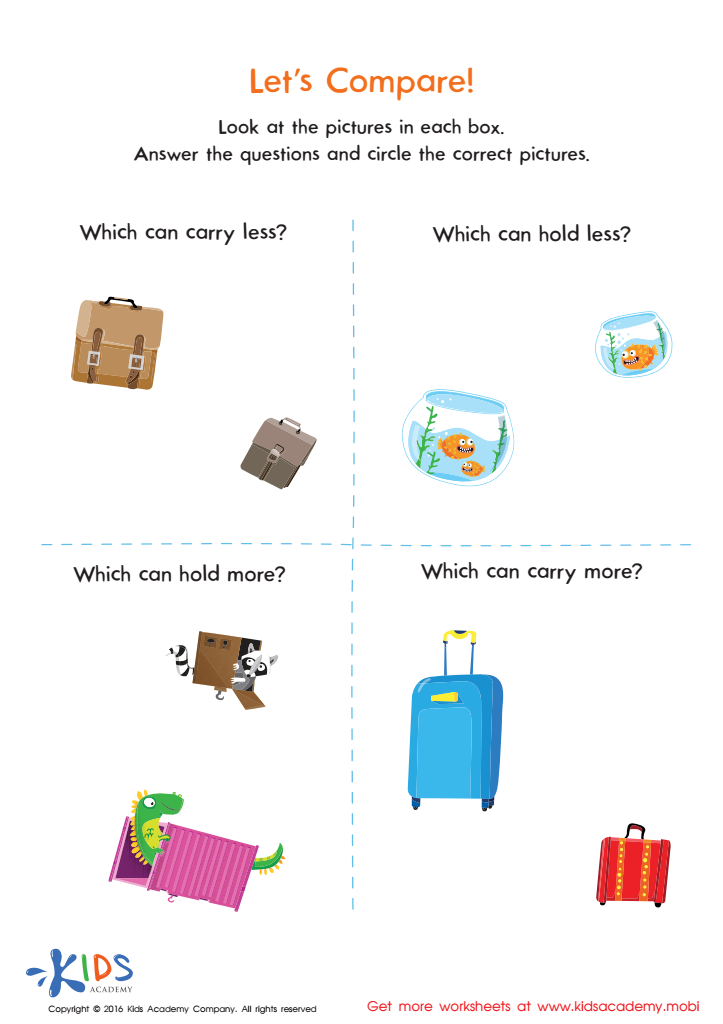

Let's Compare Worksheet: Big or Small
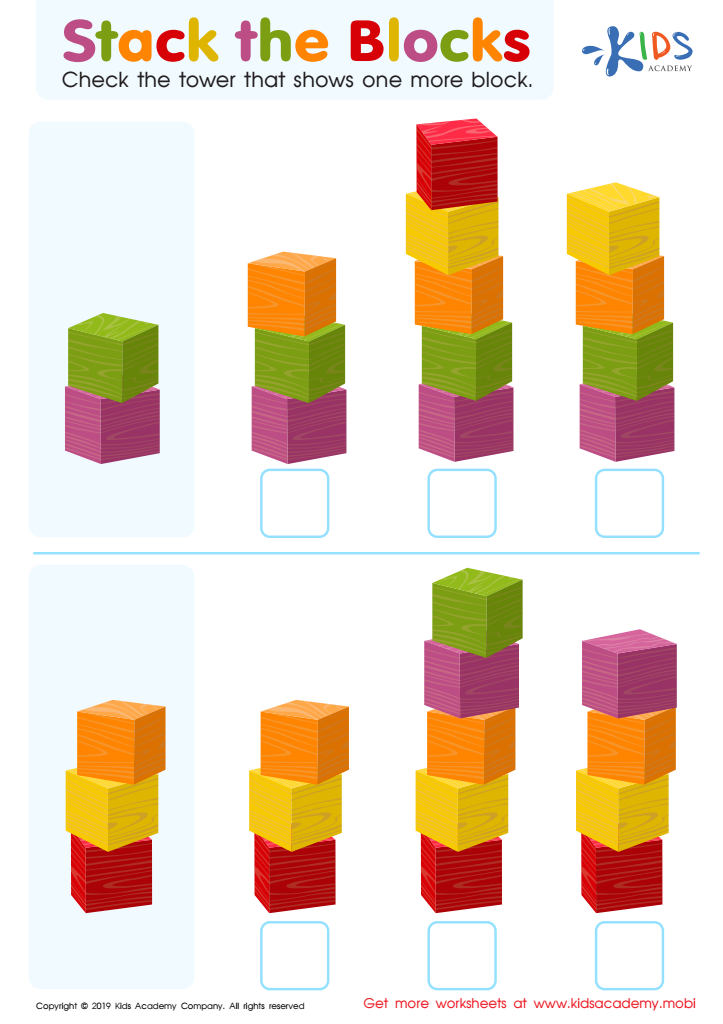

Stack the Blocks Worksheet
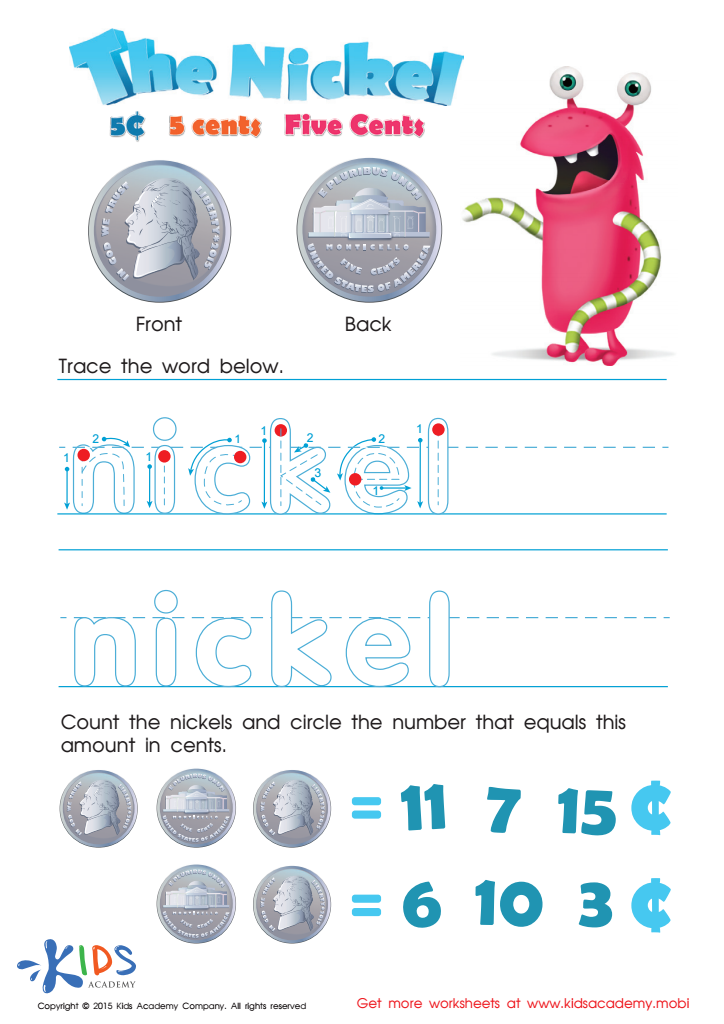

Five Cents or the Nickel Money Worksheet
Parents and teachers should prioritize basic math concepts in kindergarten because early mathematical understanding is foundational for future academic success. At this age, children are naturally curious and more receptive to learning. Introducing them to fundamental concepts like counting, number recognition, basic addition and subtraction, and even patterns enhances their cognitive development and helps them develop problem-solving skills.
Moreover, early math skills correlate strongly with a child's later success not only in mathematics but also in other subjects. Kindergarten math lays the groundwork for critical thinking and logical reasoning, which are essential for academic achievement.
Additionally, understanding basic math concepts promotes confidence and independence in young learners. When children grasp these essential skills, they are more likely to engage in classroom activities, participate in group settings, and feel competent in their abilities.
Furthermore, math is embedded in everyday life—manipulating objects, comparing quantities, or sharing items with friends. By supporting early math education, parents and teachers can provide children with valuable tools that extend beyond the classroom, preparing them for real-world experiences. Ultimately, fostering a strong mathematical foundation sets students on a path to lifelong learning and success.
 Assign to My Students
Assign to My Students







.jpg)











